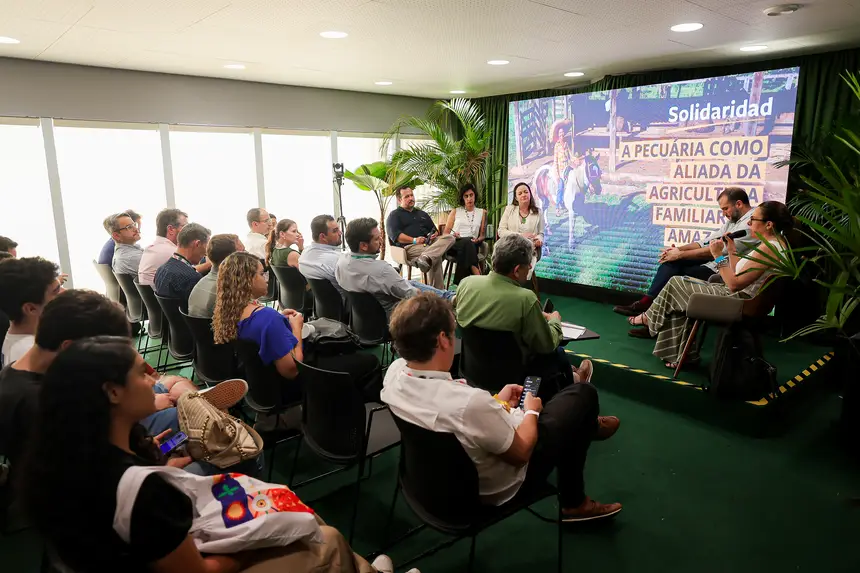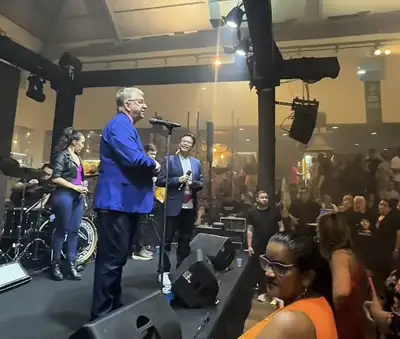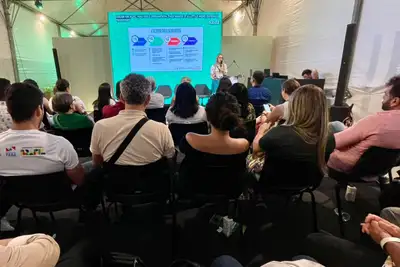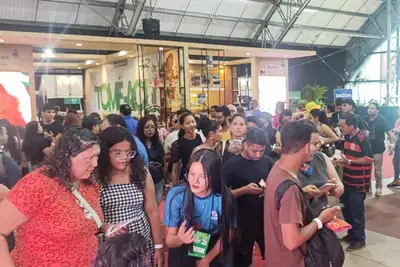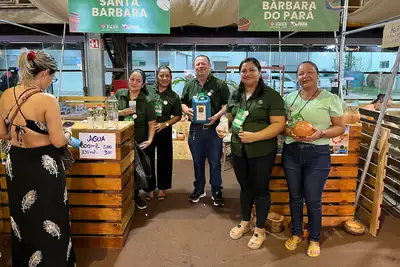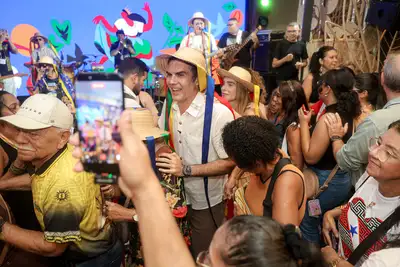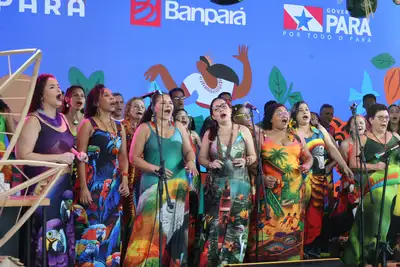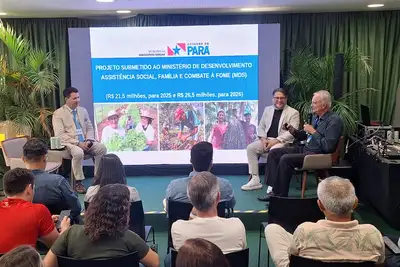The Government of Pará strengthens international partnerships, launches an app, and expands environmental actions in Agrizone during COP30
Emater, Sedap, and Adepará presented initiatives for innovation, sustainability, and responsible production in the program hosted by Embrapa
The Government of Pará, through Emater, Sedap, and Adepará, presented advances in technical assistance, sustainable agricultural production, and sanitary defense during the Agrizone program, held by Embrapa within the framework of the 30th United Nations Conference on Climate Change (COP30). The participation included technical panels, the launch of digital tools, the presentation of public policies, and the signing of an international agreement to expand actions for ecological restoration and agroforestry systems in the State.
Emater-Pará participated in several panels at the Agri Talks Arena. On the 13th, it opened the program with the panel "Reducing Pressure on Forests and Biomes," addressing landscape dynamics in the Metropolitan Region of Santarém. On the 16th, it contributed to the debate "Socioprodutive and Digital Inclusion," presenting experiences with traditional populations.
The actions continued on the 17th, with discussions on food security and the Rural Promotion Program, as well as practices for family-based organic production and emission mitigation. On the same date, during the I International Forum on Family Agriculture, the Sisater Pai D’égua App was launched, a digital innovation tool aimed at technical assistance and rural extension.
The program continued on the 19th, with a debate on bioeconomy and circular economy, and on the 20th, focusing on the role of technical assistance in Payment for Environmental Services (PSA) policies. At the closing, the Emater-Pará Seal was launched, along with a roundtable discussion on income generation and autonomy for women beneficiaries of public policies. Socioprodutive experiences from quilombolas in the Bom Jardim territory in Santarém were also presented.
Sedap establishes international cooperation for ecological restoration
Among the actions of the State Secretariat for Agricultural Development and Fisheries (Sedap), the highlight was the signing, on the 13th, of a Technical Cooperation Agreement with the Center for International Forestry Research and World Agroforestry (Cifor-Icraf). The agreement provides for the joint development of programs and projects aimed at ecological restoration, agroforestry systems, and strengthening territorial governance in Pará.
On the 14th, Secretary Giovanni Queiroz participated in a panel on promoting sustainable cocoa through forest arrangements. Sedap also presented the State Policy on Agroecology, Organic Production, and Sociobiodiversity (Peapos), developed in an integrated manner with civil society, research institutions, and the private sector.
Adepará reinforces agricultural defense and traceability
Adepará had a prominent presence at COP30, presenting actions in sanitary defense, food security, and animal and plant traceability. The Director of Plant Defense and Inspection, Lucionila Pimentel, emphasized the strategic role of the Plant Transit Guide (GTV).
“We are building a solid and auditable database that will be part of the official statistics of the State. The GTV goes beyond a simple sanitary document: it is a strategic tool for productive inclusion policies, public health, strengthening agricultural chains, and promoting sustainability,” she stated.
Pará is the largest national producer of açaí, cocoa, cassava, and palm oil – productive chains monitored by Adepará, ensuring traceability and quality. With the Artisan Plant Seal, the State already has around 400 regulated agro-industries, more than 170 of which are dedicated to cassava derivatives, which today reach national and international markets.
Responsible production and international recognition
During COP30, Norway's Climate Minister, Andreas Bjelland Eriksen, visited a rural property to learn about the Sustainable Livestock Program and the official traceability system of Pará. He highlighted the State's commitment to good productive practices and announced the extension of Norwegian support for the project until 2035.
“We are happy to have come to Brazil, to see this reality and things happening,” he stated.
Adepará also received, for the first time, a delegation from the World Organisation for Animal Health (WOAH), responsible for recognizing Pará, in May of this year, as a foot-and-mouth disease-free area without vaccination. The Director-General of WOAH, Emmanuelle Soubeyran, reinforced the relevance of traceability:
“I could see the commitment of the private and public sectors here in Pará. The system is being used to combat and prevent diseases. This is very good progress.”
Currently, the Pará Bovidea Traceability System (SRBIPA) has already identified more than 300,000 animals in 80 municipalities. For small producers, Adepará provides the "brincagem," allowing the removal of identification tags in municipal units.
The Director-General of the Agency, Jamir Macedo, highlighted the importance of the technical visit:
“This immersion is very important for us, as we can present to Brazil and the world the potential of Pará's defense and production.”
Challenges and field action
At Agrizone, Adepará also presented the panel "Animal Health, Health for All," discussing the challenges of climate change for agricultural defense in the Amazon. The teams highlighted the routine of inspection, which requires travel along long rural roads, with dust in the summer and mud in the winter, to ensure sanitary surveillance and support for rural producers in all regions of the State.




